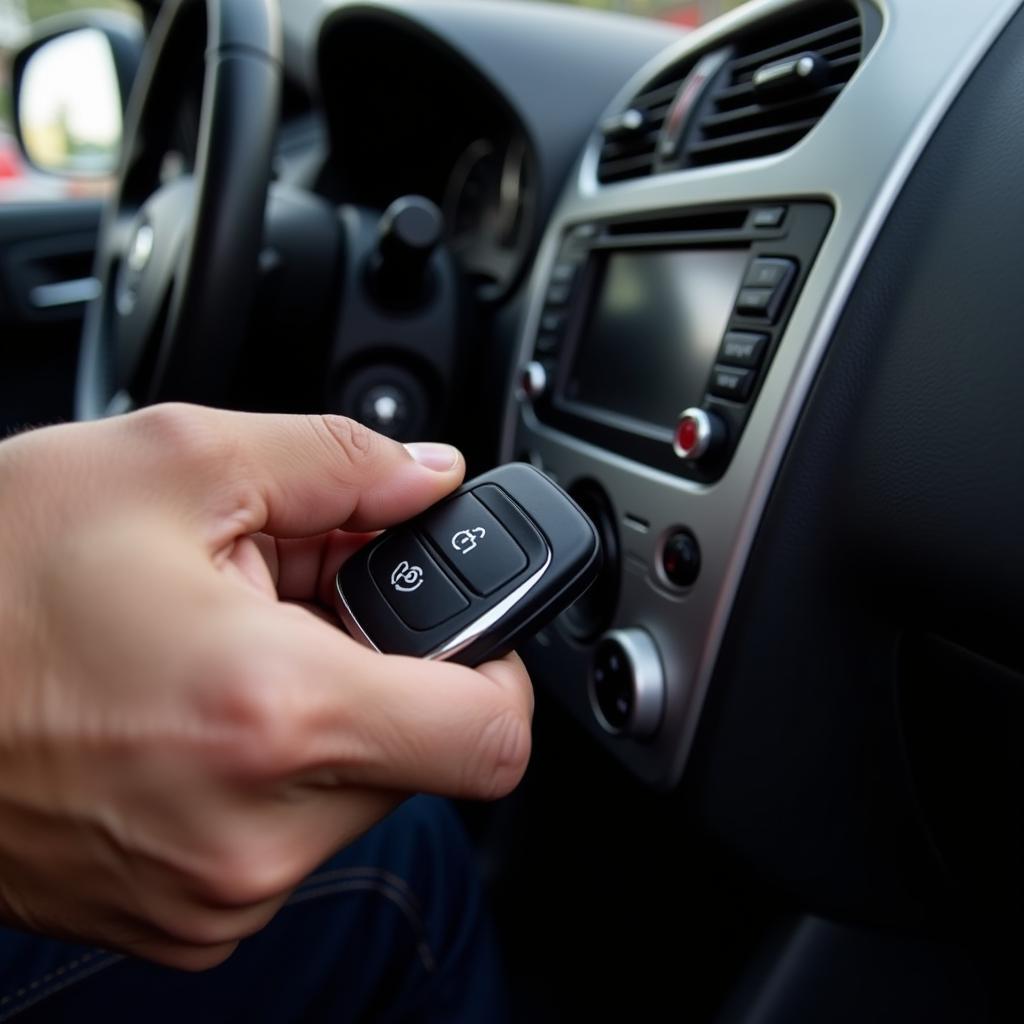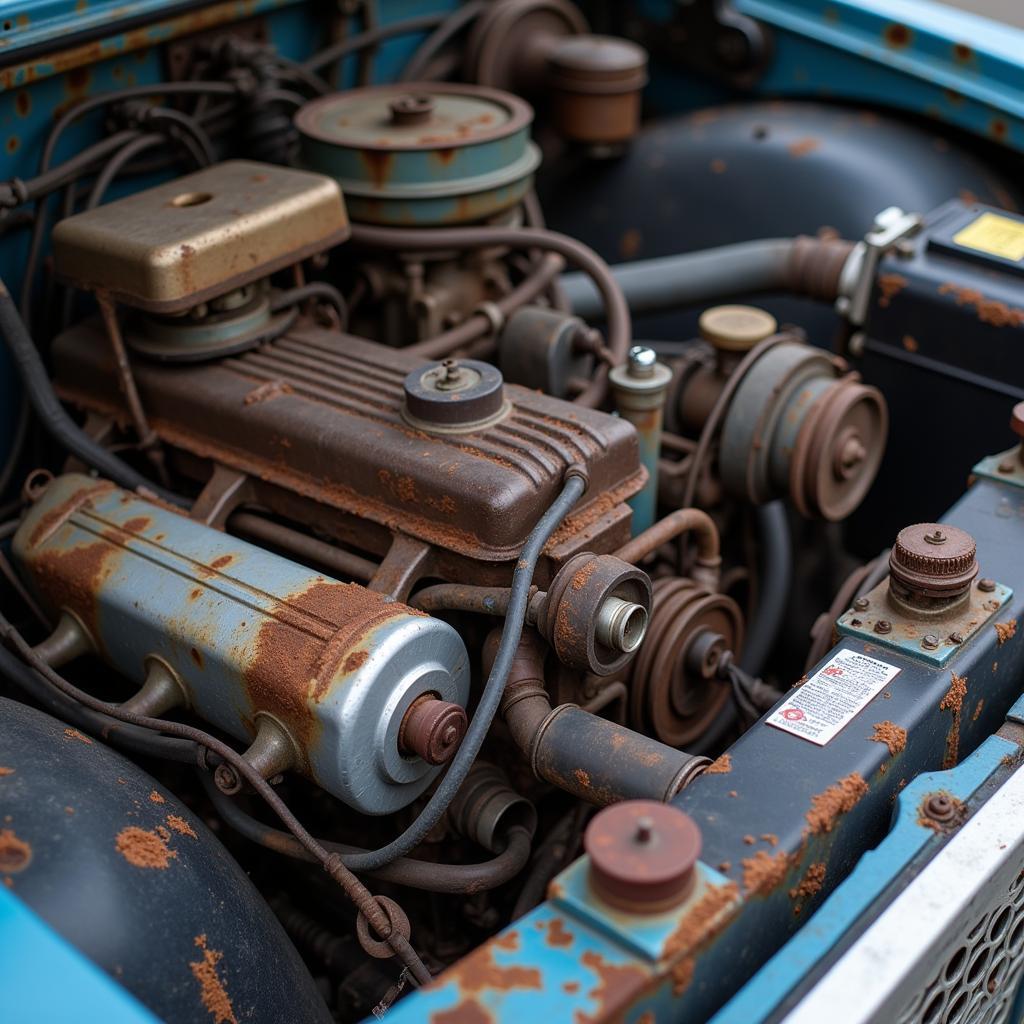Mazda vehicles are known for their reliability and performance, but even the best cars can experience engine problems. This article will explore common Mazda engine problems, their causes, symptoms, and potential solutions. We will also discuss preventative maintenance tips to help you avoid these issues in the first place.
Common Mazda Engine Problems
While Mazda engines are generally considered reliable, certain issues can occur over time or due to specific driving habits. Here are some of the most common problems you might encounter:
Engine Misfires
What are engine misfires? Engine misfires happen when one or more cylinders in your engine fail to ignite properly. This can be caused by a variety of factors, including faulty spark plugs, worn-out ignition coils, or a problem with the fuel delivery system.
Symptoms:
- Rough idle: The engine may shake or vibrate excessively, especially when idling.
- Reduced power: You may notice a decrease in engine performance, especially when accelerating.
- Check engine light: The “check engine” light will likely illuminate on your dashboard.
Solutions: Diagnosing the cause of misfires requires a thorough inspection of the ignition system, fuel delivery system, and other relevant components. Replacing faulty parts, such as spark plugs, ignition coils, or fuel injectors, can often resolve the issue.
Engine Overheating
What causes engine overheating? Overheating occurs when the engine’s cooling system fails to regulate the temperature effectively. This can be due to a lack of coolant, a clogged radiator, a faulty thermostat, or a malfunctioning water pump.
Symptoms:
- High temperature gauge: The engine temperature gauge will climb abnormally high.
- Steam from the hood: You may see steam or smoke coming from under the hood.
- Warning lights: A “hot engine” or “overheating” warning light will appear on the dashboard.
Solutions: Address the underlying cause of overheating by checking coolant levels, inspecting the radiator for blockages, replacing the thermostat or water pump if necessary. If you experience overheating, pull over immediately to prevent further damage to your engine.
Oil Consumption
What causes excessive oil consumption? High oil consumption can indicate a problem with the engine’s piston rings, valve stem seals, or other components responsible for sealing the combustion chamber.
Symptoms:
- Frequent oil changes: You may need to top up the oil frequently between oil changes.
- Blue smoke from exhaust: Blue smoke coming from the exhaust pipe is a telltale sign of oil burning.
- Oil leaks: Visible oil leaks under the car can also indicate an oil consumption problem.
Solutions: Inspecting the engine for leaks and wear, and performing repairs on components like piston rings and valve stem seals can help reduce oil consumption.
Engine Knocking or Pinging
What is engine knocking or pinging? This occurs when the fuel-air mixture in the combustion chamber ignites prematurely, creating a loud knocking or pinging sound. It can be caused by using low-octane fuel, a problem with the ignition timing, or carbon buildup in the combustion chamber.
Symptoms:
- Knocking or pinging sound: You will hear a metallic knocking or pinging sound coming from the engine, especially when accelerating.
- Reduced performance: The engine may feel sluggish and may struggle to accelerate.
Solutions: Use the recommended octane fuel for your Mazda. A mechanic can adjust the ignition timing if it’s off, and they can also clean carbon buildup in the combustion chamber.
Preventative Maintenance Tips
The best way to avoid major engine problems is to perform regular preventative maintenance. Here are some key steps:
- Change oil regularly: Refer to your owner’s manual for the recommended oil change interval.
- Use the right type of oil: Use the type of oil specified by Mazda for your vehicle.
- Check and replace air filter: A dirty air filter can restrict airflow and affect engine performance.
- Inspect and replace spark plugs: Worn-out spark plugs can lead to misfires and other issues.
- Flush cooling system: Flushing the cooling system regularly helps remove rust and debris that can clog the radiator or other components.
- Inspect timing belt: A worn-out timing belt can lead to serious engine damage.
- Check for leaks: Look for any visible oil or coolant leaks.
“I highly recommend preventative maintenance to prevent engine problems and ensure your Mazda engine stays healthy and runs smoothly for years to come,” says David Miller, a certified Mazda mechanic. “Even simple maintenance tasks like oil changes and air filter replacements can make a big difference in the long run.”
Conclusion
Mazda engines are generally known for their reliability, but even the best cars can experience engine problems. Understanding common issues like misfires, overheating, oil consumption, and engine knocking can help you identify and address problems early on. Regular preventative maintenance is crucial to keeping your Mazda engine running smoothly for years to come.
If you are experiencing any engine problems with your Mazda, please contact Autotippro for assistance. We have a team of certified technicians who can diagnose and repair any engine issues you may have.
AutoTipPro
+1 (641) 206-8880
500 N St Mary’s St, San Antonio, TX 78205, United States
FAQ
Q: How often should I change my Mazda’s oil?
A: The recommended oil change interval for your Mazda can be found in your owner’s manual, but generally, it is every 3,000 to 5,000 miles.
Q: What are the signs of a failing timing belt?
A: A worn-out timing belt can make a squeaking or grinding noise. You may also notice a loss of power or the engine misfiring.
Q: Can I add coolant myself?
A: You can check and top off the coolant level yourself, but it’s best to have a mechanic flush the entire cooling system periodically.
Q: What kind of fuel should I use in my Mazda?
A: Refer to your owner’s manual for the recommended octane rating for your Mazda engine.
Q: What can I do to prevent carbon buildup in my engine?
A: Using high-quality fuel, maintaining regular oil changes, and avoiding excessive idling can help minimize carbon buildup.






Leave a Reply